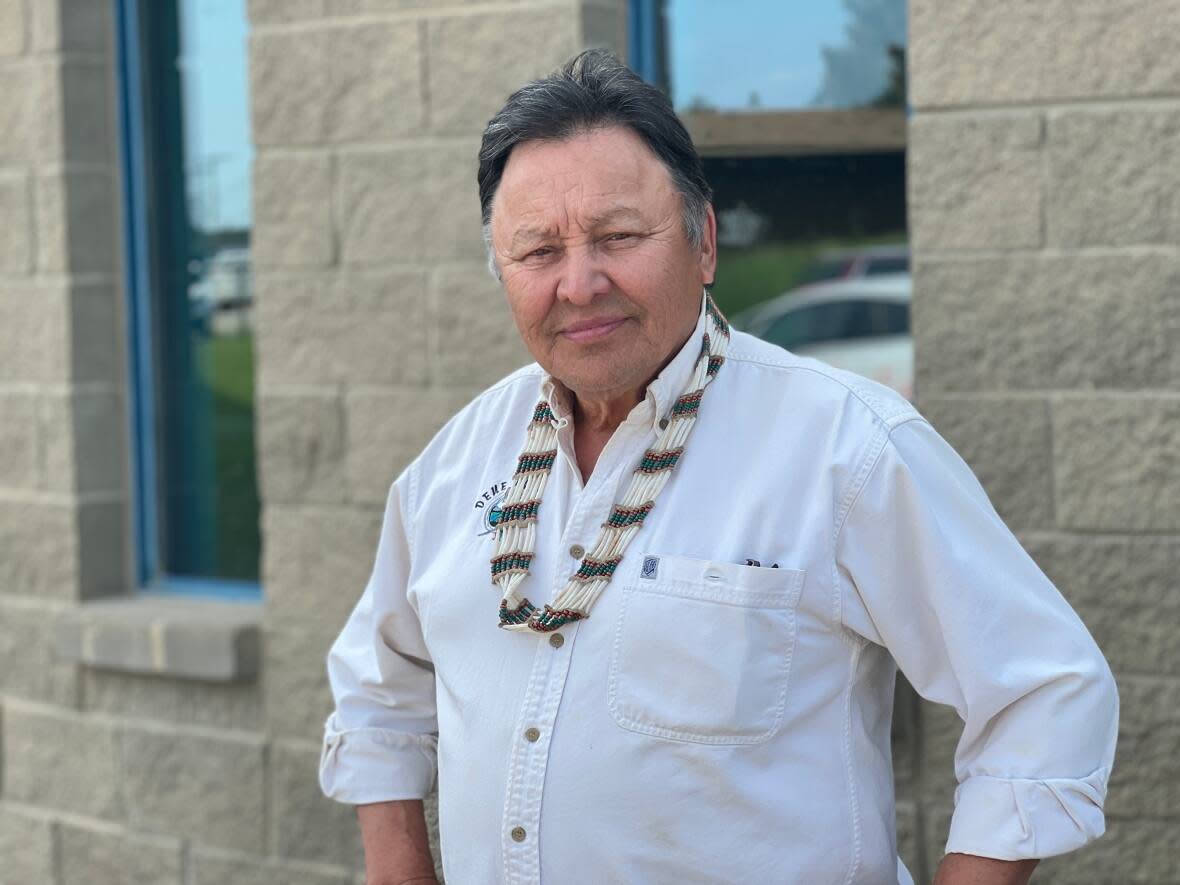Dehcho First Nations says it's being punished for not signing devolution

Dehcho First Nations wants to be part of the N.W.T.'s intergovernmental council.
Herb Norwegian, the grand chief of the Dehcho First Nations (DFN), told Premier Caroline Cochrane during a meeting in Yellowknife on Wednesday that excluding DFN from the council feels like punishment for not signing a devolution agreement with the territory.
"We need to be there and be part of that kind of discussion," he told CBC News.
Signing the territory's devolution agreement is, at least so far, a prerequisite for being on the intergovernmental council. According to the council's website, it's a "key feature" of the devolution agreement and allows the public and Indigenous governments to collaborate on land and resource management.
Dehcho First Nations did not sign on to the devolution agreement when it went into effect in 2014.
Norwegian described the intergovernmental council as a group that meets behind closed doors to talk about laws and make decisions that are later approved by the territorial government. He said their decisions affect DFN — a tribal council that represents eight Dene First Nation communities and two Métis communities — which is why it deserves a spot at those meetings.
"These laws, they go right past us, they go to the people that have actually signed on [to devolution] … and we're left out," he said. "That's totally, totally ludicrous in this day and age."
When asked what decisions the council has made that has affected DFN, Norwegian said: "there's lands, resources, permits, you know, anytime that they're going to make some changes to lands within the territories."

Norwegian said the council shares financial resources that DFN deserves a piece of. He also asked the premier to "stand firm" on an interim measures agreement that was set up before land claim negotiations started. The agreement, he said, protects lands while DFN negotiates its land claim.
Land claim negotiations between DFN, the territorial and federal governments began in 1999 and have stalled over the decades. During the Dehcho Annual Assembly in Fort Simpson, N.W.T., this year, DFN said it was resuming those negotiations after an eight-year delay.
During Wednesday's meeting, Cochrane said she was pleading with DFN to sign the territory's devolution agreement, which gives signatories a portion of the money that the territorial government collects from resource extraction.
She reassured DFN that signing the agreement wouldn't affect the interim measures agreement it already has in place or the royalties it already receives, nor would it impede DFN's "special relationship" with the federal government.
"You'll also get a share of all the other resources from every other nation and like I said, some nations are rich with minerals, and others are not," she said. "It's no personal loss to me. It's only a loss to you, and that's what bothers me the most."


